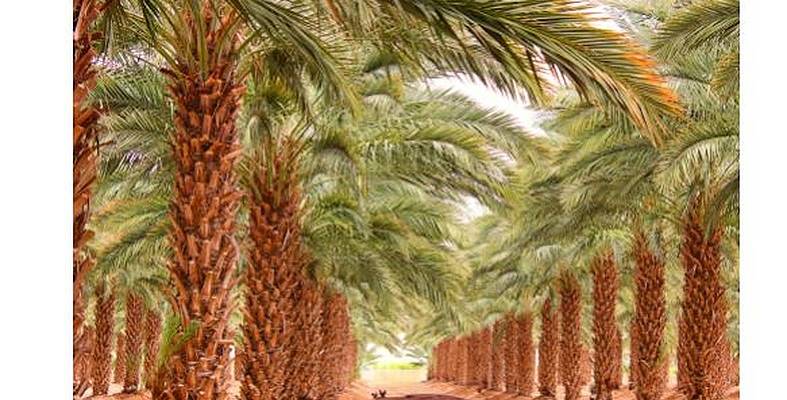
Since Jericho is in the barren Judean Desert, many of my tourists have wondered how this city was able to flourish for millenia, well before the days of piping water from afar.
By Nosson Shulman, Licensed Tour Guide
“Jericho was completely sealed before the Children of Israel, no one left and no one entered. Hashem (G-d) said to Joshua, “See I have delivered into your hand Jericho and it’s King and mighty warriors (Joshua 6: 1:2).”
Today, we are exploring perhaps the world’s oldest city, Jericho. This famous, millennia-old city may be well known to the majority of people around the world, yet most visitors to the Holy Land do not visit here.
As it is run by the Palestinian Authority, Israelis are forbidden by law to enter. Nonetheless, we will be visiting Vered Yericho, a picturesque Jewish community where we will get a perfect view of this ancient, biblical wonderland!
Since Jericho is in the barren Judean Desert, many of my tourists have wondered how this city was able to flourish for millenia, well before the days of piping water from afar.
I have explained that Jericho is an oasis with an abundance of natural (and, historically, very sweet) water. Due to current conditions, drinking the water is not recommended and may even be dangerous.
Also, Jericho is the lowest inhabited city on Earth at 240 meters (787 feet) below sea level. The combination of water, unlimited sun, and thick atmosphere make this city particularly conducive to farming and cultivation. In fact, the Bible calls Jericho the “City of Dates (Deuteronomy 34:3).”
After 40 years in the desert following the exodus from Egypt, the Children of Israel entered the land (which G-d had promised their forefathers) by crossing the Jordan River (for more on the river and miraculous crossing, click here). Their point of entrance was opposite Jericho (Joshua 3:16).
Jericho was famous for its formidable city walls that were considered “impenetrable.” By natural means, trying to conquer the city would not have been a worthwhile endeavor because it would be doomed to failure. In order to win this battle, G-d’s intervention would be necessary. Indeed, G-d promised Joshua victory (Joshua 6).
G-d commanded Joshua and his army, along with seven Kohanim (priests) carrying Shofars (ram horns, which are used as an instrument) and the Ark of the Covenant, to encircle the city, one time each, for the next six days. On the seventh day, the priests and the army encircled the city seven times.
After the seventh roundabout, the priests blew the Shofar, the Children of Israel screamed out, and the walls sunk into the ground, which easily allowed the Jewish people to conquer and destroy the city.
According to Jewish sources, the reason the walls sank deep into the ground (as opposed to tumbling down) was because they were so large that had they fallen above ground and the ruins would have remained a barrier to the Jewish army. Therefore, G-d caused them to sink deep into the ground.
After the conquest, Joshua put a curse on any Jews who would either rebuild it or build a new city elsewhere and call it Jericho. He said, “Cursed before Hashem be the man who rises up and rebuilds this city, Jericho; with his firstborn (child) he will lay it’s foundation and with his youngest he will set up its gates (Joshua 6: 26).”
However, there is no Jewish law today that prohibits Jews from living in Jericho. Indeed, throughout the last few millenia Jericho has had Jewish populations for much of its existence. According to Jewish sources, once Jericho was rebuilt, in violation of Joshua’s curse, the city was no longer forbidden for Jews to settle in. Hundreds of years later, Hiel from Beit El rebuilt the city, though his children started dying off during construction, as the curse promised, and his youngest son died when the gates were completed (Kings 16:34).
After Elisha became the spiritual leader of the Jewish people (immediately after his Rabbi, Elijah the prophet, was taken alive to heaven on a chariot by the Jordan River), he entered Jericho, where the residents of the city complained that the water of the city had turned bad and was very unsafe for drinking and bathing. Elisha told them to bring him a new jar, and he put salt in it. He then went to the spring, threw the salt into it ,and said, “Thus said Hashem, I have cured this water, there shall no longer be death from it (2 King 2:19-21).”
The city continued to be important until the Babylonian conquest and the destruction of the Temple in 422 BCE, when the Jewish inhabitants of Israel (including Jericho’s residents) were exiled. When the Jews returned to Israel under Ezra and Nehemiah, Jericho was reestablished (Ezra 2:34).
During the days of the Hasmonaeans (the Maccabees) and especially in the days of King Herod (who reigned during 37-4 BCE), Jericho became an important city, where winter palaces were located. When King Herod died, his funeral took place in Jericho.
After the Roman destruction of Jerusalem circa 70 CE, Jericho’s significance dropped dramatically. However, during periods of the Byzantine empire there were short growth spurts in the city, and several beautiful synagogues were built. When the Muslims took over for several centuries, Jericho was poorly tended and became somewhat of a wasteland.
When Rabbi Ovadia M’Bartenura came to Jericho in 1488, he wrote that the city of dates had no more dates. In 1956, in a dramatic and risky operation in Iran and Iraq, date trees were brought back to Israel and replanted, thus bringing the historic date culture back to the region. Today, date palms can be seen in abundance around Jericho!
Nosson Shulman is a journalist and Licensed Tour Guide in Israel specializing in Biblical tours. To allow tourists to experience Israel during the Corona era, he created the new hit Israel tour video series which brings Israel to the home of viewers by simulating actual tours. To check out his free sneak preview tour videos, click here. To view sample tour itineraries or to inquire about private tour opportunities with a personalized itinerary on your next trip to Israel, click here.
Bring Joy to Israeli Soldiers - Send Winter Care Packages!
We are honored to thank the young men and women of the IDF who risk their lives every day to defend the citizens of Israel.
Join us in sending winter care packages and personal notes of support to Israeli soldiers who are out in the cold all day.
Warm up a soldier's heart with essential winter wear including fleece jackets, hats, gloves and more. Keep an entire unit warm!
THE SOLDIERS REALLY APPRECIATE YOUR LOVE AND CONCERN!
Click Here to Send Your Gift and Personal Note to Israeli Soldiers
Do You Love Israel? Make a Donation - Show Your Support!
Donate to vital charities that help protect Israeli citizens and inspire millions around the world to support Israel too!
Now more than ever, Israel needs your help to fight and win the war -- including on the battlefield of public opinion.
Antisemitism, anti-Israel bias and boycotts are out of control. Israel's enemies are inciting terror and violence against innocent Israelis and Jews around the world. Help us fight back!
























